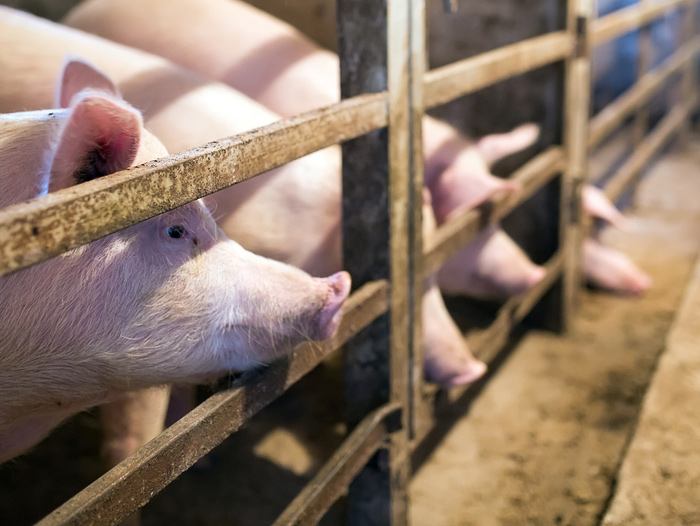Triumph Foods, Midwest Farmers Challenge Constitutionality of Massachusetts Question 3
August 2, 2023 | 3 min to read

ST. JOSEPH, Mo.– Triumph Foods filed a lawsuit in Massachusetts federal district court challenging the constitutionality of the state law known as Question 3 (Q3) and, in turn, similar laws like it, including California’s Proposition 12 (Prop 12). Christensen Farms Midwest, LLC, The Hanor Company of Wisconsin, LLC, New Fashion Pork, LLP, and Eichelberger Farms, Inc., also joined the suit as plaintiffs, along with the Allied Producers’ Cooperative, a group of smaller Midwest farmers.
The lawsuit also seeks preliminary injunctive relief to stay the enforcement of Q3 until the litigation is complete, which means Triumph Foods and the farmers are seeking immediate relief when the current stay of enforcement lifts on Aug. 24.
The lawsuit challenges Q3 and the overall constitutionality of similar laws like Prop 12. In a May 2023 opinion, the U.S. Supreme Court did not affirm the constitutionality of laws like Prop 12; it ruled only on the narrow, limited claims filed by the National Pork Producers Council (NPPC) and the Court raised concerns about other possible constitutional violations that may exist. This left the door open to address the constitutionality of laws like Q3 and Prop 12 through other claims, which Triumph Foods intends to pursue.
“Discriminatory trade restrictions like Q3 and Prop 12 affect the ability to build resilient, reliable food supply chains across the United States,” said Triumph Foods President and CEO Matt England. “They also hurt many small businesses, employees, consumers and government-funded agencies. Free and fair interstate commerce is vital for the economic prosperity of our country.”
The Biden Administration’s Solicitor General also questions the constitutionality of laws like Q3 and Prop 12. The Solicitor General raised concerns about the discriminatory impact on other states, due process violations, the threat to the nation’s food supply and interference with the federal government’s obligations to ensure food safety.
In the recent litigation before the U.S. Supreme Court, the Solicitor General noted that the U.S. Congress delegated food safety responsibilities to the U.S. Department of Agriculture (USDA), which regulates the nation’s pork supply and is charged with ensuring all meat offered for sale throughout the country is safe to eat.
“The attempt by individual states to reach into the farms and processing plants to regulate our complex supply chain is unprecedented and dangerous. Laws like Q3 and Prop 12 put not just farmers at risk but threaten food security,” said the farmer plaintiffs. “The USDA already regulates foodborne illnesses. We cannot have each individual state try to usurp that role.”
The Iowa Pork Producers Association (IPPA) previously filed a lawsuit against Prop 12 prior to the U.S. Supreme Court ruling in the NPPCcase. The IPPA litigation has some similar claims to those now also pursued against Q3. Triumph Foods supports this lawsuit. On July 5, the Ninth Circuit Court of Appeals agreed to allow this case to proceed and on an expedited basis, denying requests from the California Attorney General’s Office and intervenors.
Triumph Foods hopes to obtain immediate and permanent relief from Q3, Prop 12 and any attempt by individual states to disrupt interstate commerce and our nation’s food supply in the future.
About Triumph Foods
Triumph Foods is a leading processor of premium pork products worldwide. The farmer-owned company began operations in St. Joseph, Mo., in January 2006. With its state-of-the-art facility, Triumph employs over 2,400 workers and produces over 1.5 billion pounds of pork annually. For more information, visit triumphfoods.com.
